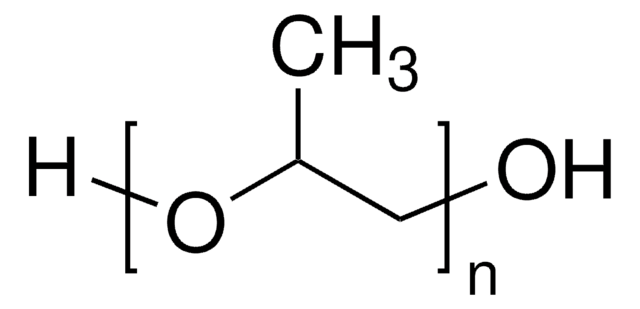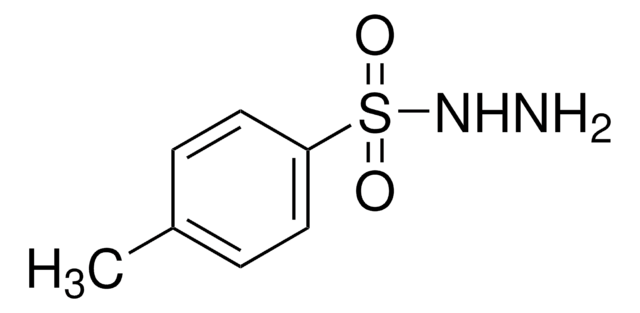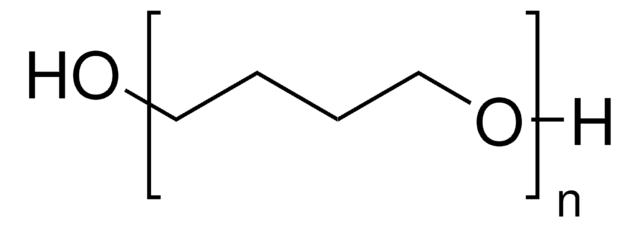202355
Poly(propylène glycol)
average Mn ~4,000
Synonyme(s) :
PPG, Poly(oxyde de propylène)
About This Item
Produits recommandés
Densité de vapeur
>1 (vs air)
Pression de vapeur
<0.01 mmHg ( 20 °C)
Description
functionality 1.7
Poids mol.
average Mn ~4,000
Impuretés
≤0.035% Water (Karl Fischer)
Viscosité
1,300 cP(25 °C)(lit.)
Indice d'hydroxyle
28 mg KOH/g
Solubilité
H2O: <0.01 % (w/w) at 25 °C
Densité
1.004 g/mL at 25 °C
Chaîne SMILES
CC(O)CO
InChI
1S/C6H14O3/c1-5(8)4-9-6(2)3-7/h5-8H,3-4H2,1-2H3
Clé InChI
DUFKCOQISQKSAV-UHFFFAOYSA-N
Vous recherchez des produits similaires ? Visite Guide de comparaison des produits
Catégories apparentées
Description générale
Application
- As a precursor to synthesize biodegradable poly(ether-ester) networks via UV photopolymerization.
- As a stabilizing agent in the preparation of metal nanoparticles such as gold nanoparticles.
- As a starting material to prepare silane-terminatedpoly(urethane-urea)s (SPUR) polymers.
Code de la classe de stockage
10 - Combustible liquids
Classe de danger pour l'eau (WGK)
WGK 1
Point d'éclair (°F)
445.0 °F - closed cup
Point d'éclair (°C)
229.44 °C - closed cup
Équipement de protection individuelle
Eyeshields, Gloves
Faites votre choix parmi les versions les plus récentes :
Déjà en possession de ce produit ?
Retrouvez la documentation relative aux produits que vous avez récemment achetés dans la Bibliothèque de documents.
Les clients ont également consulté
Articles
A Review of Mesoporous TiO2 Thin Films
Notre équipe de scientifiques dispose d'une expérience dans tous les secteurs de la recherche, notamment en sciences de la vie, science des matériaux, synthèse chimique, chromatographie, analyse et dans de nombreux autres domaines..
Contacter notre Service technique






